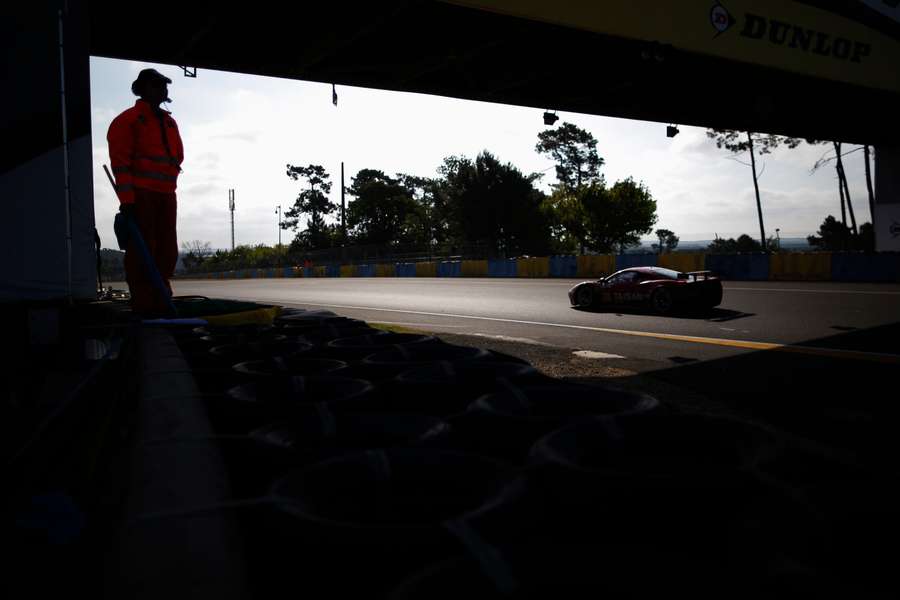Le Mans celebrates centenary of tragedy and triumph

After 236 laps, a distance of some 3,200 km, the privately-entered Yorkshire racer finished a remarkable eighth. He turned 50 a month later.
Asked in later life how he had managed the toilet breaks, Hall replied 'green overalls, old boy'.
The story, from the days when drivers were fuelled by cognac and champagne and a woman might race through the night wearing a fur coat, is all part of the rich tapestry of the world's greatest sportscar race.
This weekend it celebrates its centenary, and 91st edition since 1923.
More than 300,000 people will pack the Circuit de la Sarthe to watch the cars race into the sunset and through the night until dawn rises over one of the world's most evocative tracks.
US basketball great LeBron James (38) is the guest starter.
The Mulsanne straight, also known as the Ligne droite des Hunaudieres, the corner at Arnage and Tertre Rouge are as familiar to global motorsport fans as Eau Rouge at Spa-Francorchamps or Monaco's Rascasse.
Le Mans joins the Indianapolis 500, the Greatest Spectacle in Racing since 1911, and Monaco Grand Prix - first raced in 1929 - as the elements of the so-called 'Triple Crown of Motorsport'.
The list of those who have taken part over the years is a roll call of greats - from pre-war stars Tazio Nuvolari and Rudolf Caracciola through to Juan Manuel Fangio, Jim Clark, Jackie Stewart, Mario Andretti and Fernando Alonso.
It has crowned its own heroes, like six times winner Jacky Ickx of Belgium, Britain's five times winner Derek Bell or nine-times record holder Tom Kristensen of Denmark.
The familiar Formula One gesture of spraying champagne on the podium actually originated at Le Mans in 1967, when American Dan Gurney shook the bottle after winning in a Ford GT40 with compatriot AJ Foyt.
"Dan’s naughty nature took over and he used the bottle like a firehose on everybody out of sheer exuberance, a relief for finally having won the race after 10 tries," his wife Evi recalled to Reuters in 2017.
Le Mans also witnessed the worst disaster in motor racing history in 1955 when 84 people died, including 49-year-old French driver Pierre 'Levegh' Bouillin.
Levegh's car hit an embankment and exploded, the debris hurled into the crowd.
Mercedes withdrew from factory-sponsored motorsport at the end of the year, returning to Formula One in 1994 as an engine maker, while Switzerland banned races.
In 1971 a movie hit the screens with Steve McQueen in the central role of Michael Delaney, who uttered the immortal words: "When you’re racing, it’s life. Anything that happens before or after is just waiting."
There were epic 1960s and early 1970s battles between Ford and Ferrari while Porsche, Audi, Toyota enjoyed dominant phases, a trend started by the British 'Bentley Boys' who won from 1924-30.
The now-discontinued 'Le Mans starts', in which drivers ran to their cars lined up side by side in front of the pits, were another feature.
"At the signal for the four o’clock start, all drivers dashed across the tarmac, jumped into their cars and charged off in a chaotic melee. That is. All except one," recalled British sportscar driver Brian Redman of the 1969 race.
"Jacky Ickx, critical of the obvious dangers inherent in this colourful bit of theatre, made it a point to stroll across the track after everyone else and carefully fasten his safety belts before starting his car."
Ickx went on to win that race, his point made.
Pierre Fillon, the Le Mans-born president of the organising Automobile Club de l'Ouest, said improved safety had been the biggest change in his lifetime.
"There is no change in the spirit," he told Reuters this week. "The spectators are coming to have a human experience during one week at Le Mans with family, with friends. And this is the same as it was 30 years ago."
(Reporting by Alan Baldwin, editing by Toby Davis)



